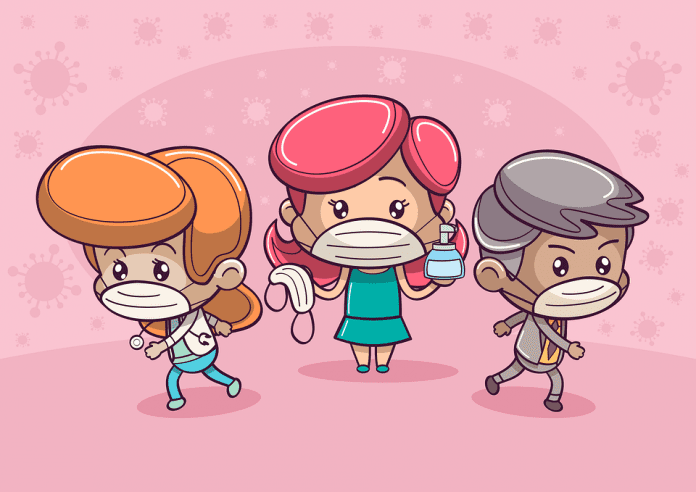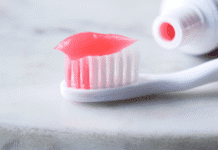Last Updated on February 10, 2025 by Bisma Sehar
Nursing is one of the most rewarding and demanding careers a person can choose. It offers prestige, autonomy, and excellent pay. But it also has demands that rival any other career. Tiring shifts can lead to burnout. Moreover, providing patients with life-saving care requires nurses to hone their practice continuously. So, how can you achieve becoming a better nurse? We’ve listed a few tips to help you out.
Table of Contents
1. Learn To Delegate
This one is mainly for nurse leaders and managers. You must understand that you can’t possibly do everything yourself. You must use other nurses to get things done, which means you must learn to delegate. If you can’t delegate, you will find yourself overwhelmed with tasks and unable to complete work. You’ll never be able to improve your nursing practice simply because you wouldn’t be able to focus on areas where you might lack. You may feel that asking for help makes you appear weak or incapable, but remember that this is your role as a leader.
2. Upgrade Your Skills
Keep learning new skills by continuing education. Doing so will help you stay up-to-date on the latest nursing techniques. Plus, you’ll learn new hard and soft skills and knowledge to improve your practice. So, if you’re a registered nurse, consider enrolling in a cost-effective program to advance your career. Or, if you already have a BSN degree, obtain a postgrad degree, such as an online RN to MSN degree. Online learning makes upskilling more flexible while managing shifts around the clock.
3. Stay Focused And Alert
Pay attention to details. Being inattentive can lead to you missing out on essential instructions from doctors. Also, you may miss out on something important your patients have to tell you. Be observant and spot signs while attending to patients. Doing so will help you be more informed about your patients’ situation and thus provide better care.
4. Know Your Limits
You must know what you can do and then do it well. Don’t assume you know something just because the other nurses do it. Take a step back and review what you know so far about the task at hand, and then determine whether or not you can do it. The decision is yours, and the consequences will be too. Working within your limits will keep the chances of errors low.
5. Ask Questions
Getting as many details from patients as possible is essential to help doctors devise better treatment plans. Therefore, ask as many questions as you can from your patients. Ask about their medical history, current conditions, symptoms, pain, etc. Ask attendants accompanying patients about anything to overrule the possibility of patients missing out on information.
Similarly, ask your nurse manager or doctor questions if you have ambiguity. Doing so will ensure you’re well informed and know how to deliver the correct treatment to each patient.
6. Learn The Lingo
Different healthcare settings have different medical lingo. If you’re interested in travel nursing, familiarizing yourself with the local vernacular will make you feel more comfortable in the new environment. It would help if you familiarized yourself with surgical terms and acronyms. Also, pay attention to how other nurses and medical staff speak and behave. This will help you “fit in” and know when to offer direction to others.
7. Communicate clearly and concisely
Miscommunication can be fatal in healthcare settings. So, communicate effectively. Avoid giving a lengthy response or explanation to a patient. Be prompt with the information you share with other professionals working on the same patient to prevent treatment delays. Follow the lead of your more experienced co-workers and do as they do. You can take short courses to hone your communication skills if you feel you’re lacking.
8. Know Your Schedule
Knowing when and where you are working is essential to prepare yourself. For example, if you have a certification test to take on a given day, make sure you don’t schedule a procedure requiring your assistance on that same day. Knowing your schedule ensures you’re there to look after your patients and help them on time. No one likes an unpunctual nurse.
Also, consider the time you will travel between work and home. You don’t want to return late because you didn’t plan well. The more you know about your schedule, the better you can balance your life.
9. Be Prepared For Anything
The operating room is not a place to be caught off guard. You never know what might happen, so it is best to be ready for anything. Get all the equipment that you may need before initiating a task. This will avoid long waits and ensure that the surgeon doesn’t have to stop what they are doing to get something from you. The more prepared you are, the more productive and efficient your work is.
10. Prioritize Your Well-Being
Staying physically and mentally healthy can prove beneficial in improving your practice. How? You won’t be exhausted and agitated all the time. It will help you reduce sloppiness on the job and focus your attention on helping patients recover. So, eat healthy food, stay hydrated, exercise, and get a good night’s sleep. A healthy nurse can provide better care than an unhealthy one.
Overview
Nursing is a noble profession that requires dedication, compassion, and continuous learning to provide the best possible care to patients. As a nurse, enhancing your practice is crucial to provide optimal patient care, and various ways exist. Here are ten ways to enhance your nursing practice:
- Continuous Education: Pursue continuing education courses and training programs to stay updated with new medical knowledge and trends.
- Attend Conferences and Workshops: Attend nursing conferences and workshops to stay informed about the latest advancements in the field.
- Read Journals and Articles: Reading nursing journals and articles keep you informed of the latest developments in the field.
- Develop Communication Skills: Effective communication is crucial to nursing practice, and developing communication skills improves patient outcomes.
- Engage in Reflective Practice: Reflection on your practice helps you learn from your experiences and improve your nursing practice.
- Embrace Technology: Adopting and learning new technologies can help improve efficiency and provide better care to patients.
- Collaborate with Other Healthcare Professionals: Collaborating with other healthcare professionals enhances interdisciplinary teamwork and improves patient outcomes.
- Be Mindful of Cultural Diversity: Understanding cultural diversity and its impact on patient care helps provide culturally sensitive and competent care.
- Volunteer and Engage in Community Health Programs: Volunteering and engaging in community health programs help nurses provide preventive care and health promotion.
- Practice Self-Care: Practicing self-care is essential to prevent burnout and maintain physical and mental well-being.
Conclusion
Nursing is a demanding job. It requires professionals to stay on their toes to be able to provide patients with better care. This article mentions a few tips for you to hone your nursing practice. Updating your hard and soft skills can be beneficial in the long run. You can turn to the internet to do so. Also, ask questions when you’re confused, stay alert about what’s happening, and manage your shifts to be available for patients. By improving your nursing practice, you can help patients recover faster.
Read more: Top 7 Most Lucrative Nursing Careers
















